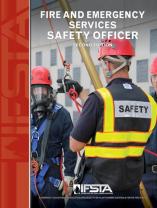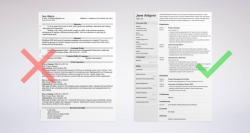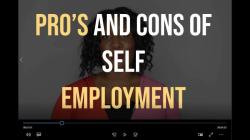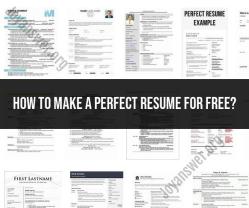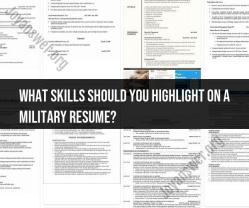How to respond to a performance review?
Responding to a performance review is an important step in your professional development. Whether your performance review is positive or contains constructive feedback, how you respond can have a significant impact on your career. Here are some best practices for responding to a performance review:
Prepare in Advance:
- Before the performance review meeting, take time to review your own performance and any feedback or goals you set in the previous review. Consider how you've met your goals and the challenges you've faced.
Stay Calm and Open-Minded:
- During the review meeting, maintain a calm and open-minded demeanor. Be receptive to the feedback provided, whether it's positive or constructive criticism. Avoid becoming defensive or argumentative.
Ask Clarifying Questions:
- If you don't fully understand the feedback or need more information, don't hesitate to ask clarifying questions. Seek specific examples and actionable advice to help you improve.
Acknowledge Positive Feedback:
- If you receive positive feedback, express gratitude and acknowledge your accomplishments. Highlight specific achievements and contributions you're proud of.
Address Constructive Feedback Positively:
- When receiving constructive feedback, view it as an opportunity for growth. Express your commitment to improvement and ask for guidance on how to address areas of concern.
Discuss Goals and Development:
- Use the performance review as a platform to discuss your career goals and professional development. Share your aspirations, and ask for input on how you can progress in your role or within the organization.
Agree on Actionable Steps:
- Work with your supervisor to establish clear, measurable goals and action plans for the upcoming performance period. Ensure you both have a shared understanding of expectations.
Document the Review:
- After the meeting, document the key points of the performance review, including feedback received and action items. This documentation can serve as a reference for your future performance.
Follow Up:
- Throughout the performance period, periodically check in with your supervisor to discuss your progress toward goals and address any concerns. This demonstrates your commitment to improvement.
Express Gratitude:
- Regardless of the feedback you receive, express gratitude to your supervisor for taking the time to conduct the performance review and provide feedback.
Implement Feedback:
- Act on the feedback and action plans discussed during the review. Show your dedication to improvement by making positive changes in your work.
Track Progress:
- Keep track of your progress toward meeting your goals and addressing areas of improvement. This will help you demonstrate growth and development in future reviews.
Seek Additional Resources:
- If there are specific skills or knowledge gaps you need to address, inquire about training, resources, or mentorship opportunities that can support your development.
Maintain Regular Communication:
- Maintain open lines of communication with your supervisor throughout the year. Don't wait for the next performance review to discuss your progress or challenges.
Remember that a performance review is a two-way conversation, and it's an opportunity to align your goals with those of your organization and to continuously improve your skills and contributions. Approach it with a positive and growth-oriented mindset.
Navigating Your Performance Review: Tips for a Constructive Response
Performance reviews can be a nerve-wracking experience, but they don't have to be. By following these tips, you can craft a constructive response to your performance review that will help you make the most of your feedback and grow as a professional.
1. Be prepared. Before your performance review, take some time to reflect on your performance over the past year. Make a list of your accomplishments, as well as any areas where you could improve. This will help you to provide a thoughtful and comprehensive response to your manager's feedback.2. Be open-minded. Even if you disagree with some of the feedback you receive, it is important to be open-minded and willing to listen to your manager's perspective. Try to see the feedback as an opportunity to learn and grow.3. Be specific. When responding to feedback, be as specific as possible. Avoid making general statements or excuses. Instead, focus on specific examples of what you did well and where you could improve.4. Be constructive. Your response to your performance review should be constructive and focused on the future. Don't dwell on past mistakes or make excuses. Instead, focus on what you can do to improve your performance in the future.5. Be professional. Keep your response professional and respectful, even if you disagree with your manager's feedback. Avoid getting defensive or making personal attacks.
Responding to Feedback: Effective Strategies for Your Performance Review
Here are some effective strategies for responding to feedback during your performance review:
- Acknowledge the feedback. Let your manager know that you understand and hear their feedback. This doesn't mean that you have to agree with the feedback, but it shows that you are open to listening and learning.
- Ask for clarification. If you don't understand a piece of feedback, ask your manager to clarify. This will help you to ensure that you are both on the same page.
- Provide specific examples. When responding to feedback, be as specific as possible. Provide specific examples of what you did well and where you could improve. This will help your manager to understand your perspective and provide more helpful feedback in the future.
- Be open to change. Be willing to take the feedback to heart and make changes to your behavior. This shows that you are committed to your professional development and that you are serious about improving your performance.
Making the Most of Your Performance Review: Crafting a Thoughtful Response
To make the most of your performance review, it is important to craft a thoughtful and well-written response. Here are some tips:
- Take some time to reflect. Before you start writing your response, take some time to reflect on the feedback you received. Think about what you agree with, what you disagree with, and what you can learn from the feedback.
- Be specific and constructive. When you start writing your response, be as specific and constructive as possible. Provide specific examples of what you did well and where you could improve. Also, focus on what you can do to improve your performance in the future.
- Be professional. Keep your response professional and respectful. Avoid getting defensive or making personal attacks.
- Proofread your response carefully. Before you submit your response, proofread it carefully to catch any errors in grammar or spelling.
By following these tips, you can craft a thoughtful and constructive response to your performance review that will help you make the most of your feedback and grow as a professional.




